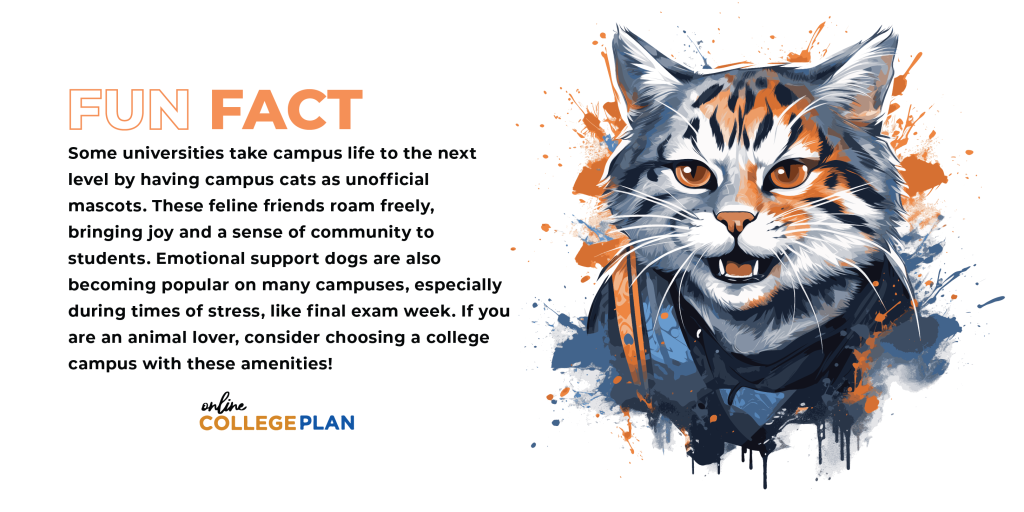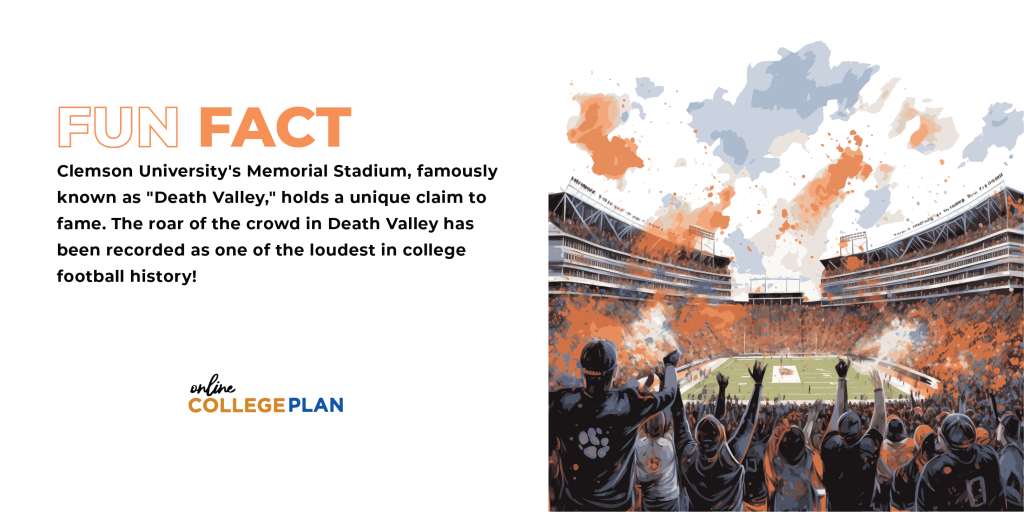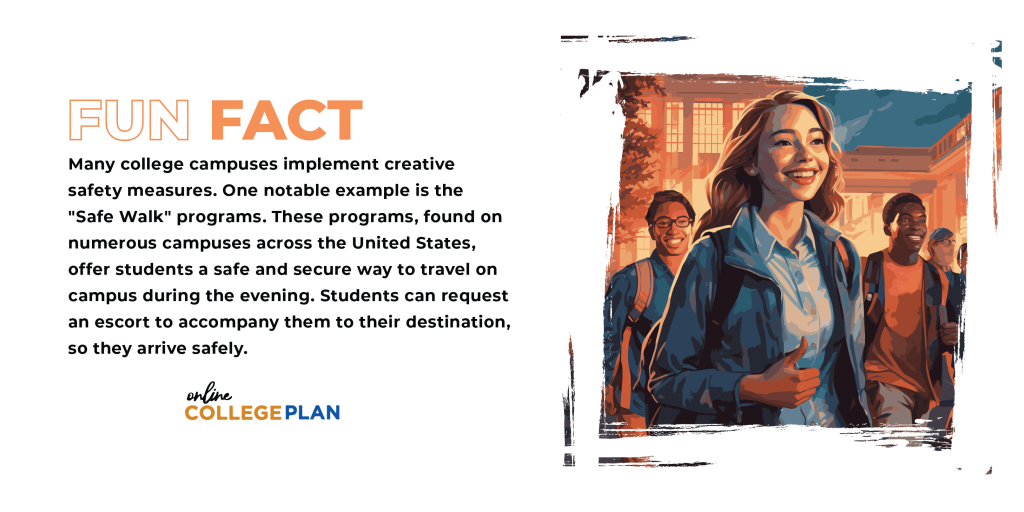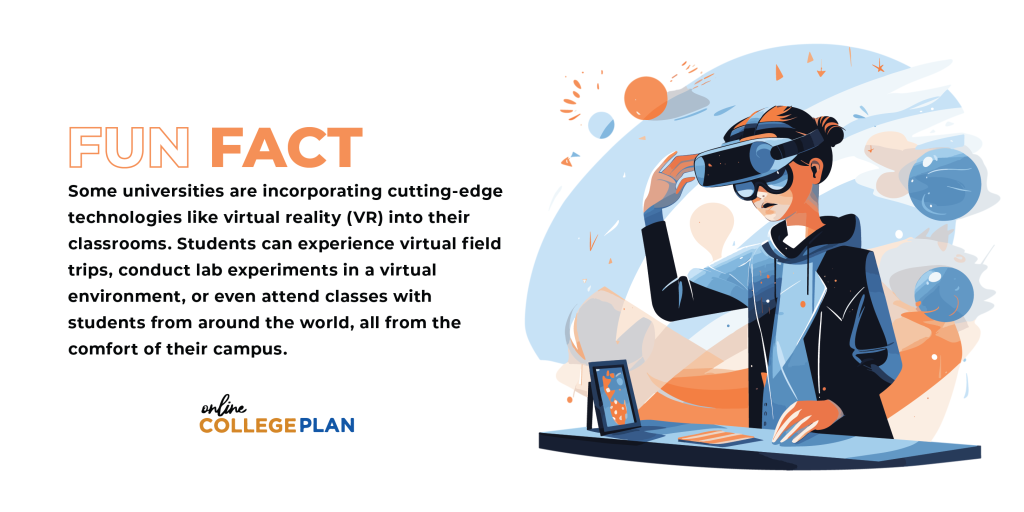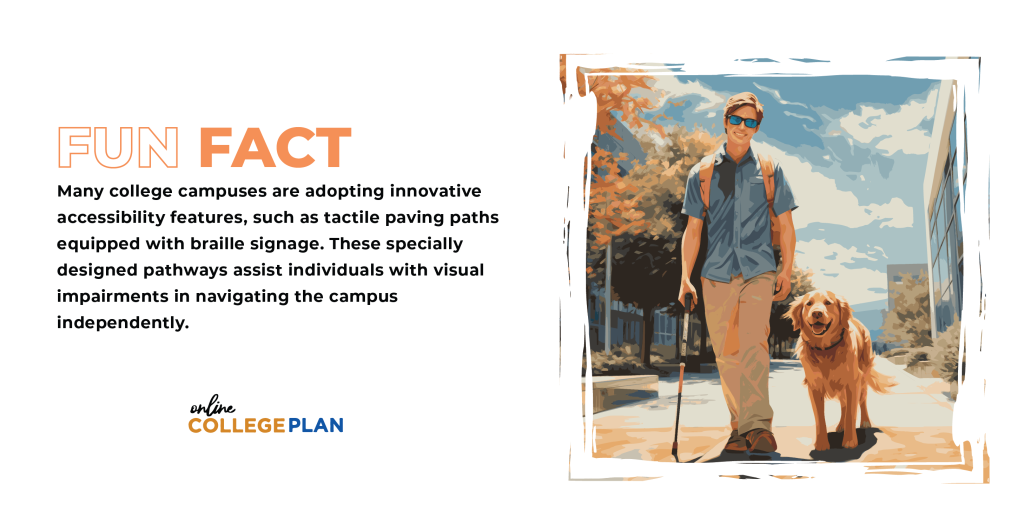Find your degree
Choosing the right college is a thrilling milestone in a student’s life! This important decision goes beyond academics. You don’t want to overlook the excitement of exploring campus facilities. The amenities a college provides can impact your experience. In this student’s guide to assessing campus facilities, we discuss the importance of knowing what your future college offers. We give you an idea of things to look for on your college visit. We offer a comprehensive approach to assessing campus facilities.
Importance of Knowing What Your College Offers
It’s essential to understand the facilities a college offers for a well-rounded educational experience. These facilities go beyond the classroom. Facilities include the community, resources, and opportunities available to you. Here’s why a campus facility evaluation is crucial:
- Holistic College Experience: The college experience is more than attending lectures and taking exams. The facilities provided by the college contribute to the overall environment. From libraries to sports complexes, each facility plays a role in creating the college experience.
- Support for Academic Success: Well-equipped libraries and research resources are important for academic success. Access to them is crucial. Conduct your own campus amenities assessment. This way, you can be sure the college supports your academic ambitions. This is especially important for high school students transitioning to college.
- Quality of Campus Life: Facilities can contribute to the quality of campus life. It is important to check out dormitory amenities. It is also important to check out sports and recreational facilities. Technology spaces are also important to evaluate. Considering these aspects helps gauge how comfortable and enjoyable your stay on campus will be. A thriving campus life enhances both social and personal development.
Related Resources:
An Easy Campus Visit Checklist for Prospective Students
College Tours: An Easy Guide for Parents
Assessing Library and Research Resources
Libraries are the heart of any educational institution. They are not just spaces filled with books. They are hubs of:
- knowledge
- research
- collaboration
Here are some tips for inspecting college facilities. These tips focus on assessing library and research resources:
- Library Size and Collection: The library’s size and the variety of books and resources it has can show you what’s available for your studies. Make sure the library has a mix of books, journals, and online materials related to your field of study.
- Study Spaces: Having a good place to study is important for doing well in your academics. Check if the library has quiet spots and places for group work. You will want to be sure these spaces are set up for modern technology. Research will be easier to do in an area with dedicated space for computers and printers.
- Library Services and Support: Look into the library’s support services. This includes assistance from librarians. Ask about interlibrary loan options and if they offer workshops on research skills. A well-supported library ensures that you can make the most of the resources available. It helps you excel in your academic endeavors. Some libraries even offer workshops to teach students how to navigate databases.
- Digital Resources and Online Accessibility: Assess the library’s digital resources and online accessibility. The library should have a user-friendly online catalog. It should also have access to popular databases. They should digitize materials as much as possible. This way, students can integrate technology into their research efforts.
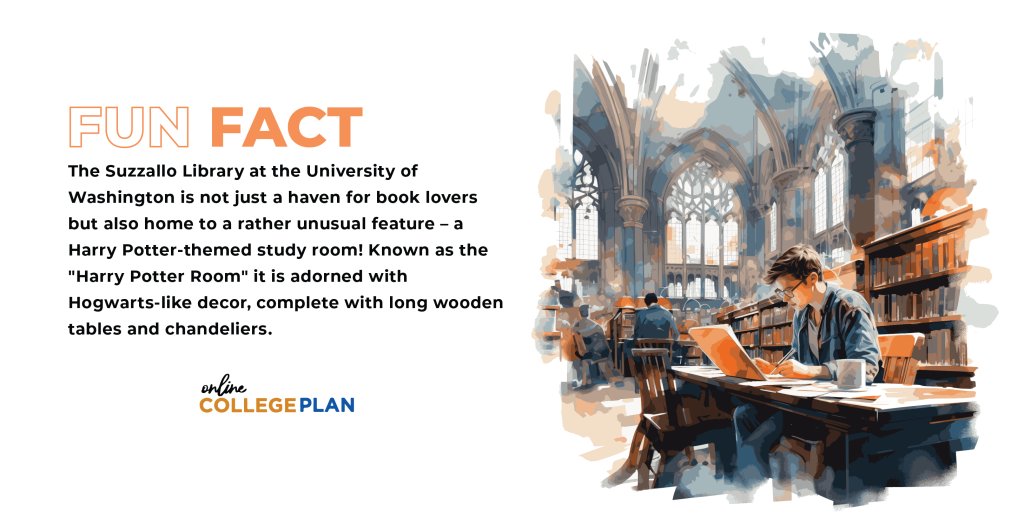
Exploring Sports and Recreational Facilities
Sports and recreational facilities contribute to a balanced and healthy college life. Evaluating these facilities is essential. Check them out whether you’re a sports enthusiast or someone who enjoys staying active!
- Sports Complex and Facilities: Explore the college’s sports facilities. See if they have what you need for your favorite sports or activities. Make sure the college offers the facilities you need. This includes gyms, pools, and sports fields.
- Intramural and Club Sports: Participating in sports can be a great way to stay active. You might even make new friends! Inquire about the availability of intramural and club sports programs. These opportunities provide a way for students to engage in friendly competition. They also help build a sense of community.
- Wellness and Fitness Programs: A college should prioritize the well-being of its students. Does the school offer yoga classes and fitness workshops? These programs can contribute to your health and happiness during your college years.
Checking Out Dormitory Amenities
Your living space on campus plays a crucial role in shaping your college experience. Here’s what you should consider when checking out dormitory amenities:
- Room Configurations and Facilities: Explore the different dormitory options available. Then assess the room configurations. Do you want a roommate? Do you plan on eating in the cafeteria or preparing your meals? Consider factors such as single or shared rooms and communal spaces. Look for laundry rooms and communal kitchens.
- Residential Life Programs: Some colleges offer residential life programs. These programs can enhance the community living experience. Ask about mentorship programs and social events. Ask about other initiatives that help create a sense of community.
- Safety and Security Measures: The safety and security of the dormitory are critical. Ask about the security measures in place. This includes surveillance systems, access control, and on-site staff. Feeling safe in your living space is crucial for a positive college experience.
- Digital Connectivity: You will want to check out how well-connected the dorm is. Do they offer wi-fi access and charging stations? Staying connected is an important aspect of both academic and personal student life.
- Community Spaces and Recreational Facilities: Communal spaces within a dorm encourage social interaction. Ask about common rooms, game areas, or outdoor spaces. These important areas allow students to gather. They help students feel less isolated and have a positive dormitory experience.
Examining Technology and Lab Spaces
In today’s digital age, students from every major need access to technology. They also need well-equipped labs. Here’s what you should consider when examining these facilities:
- Technology Infrastructure: Check out the technology infrastructure on campus. Check if the Wi-Fi is reliable. Look for computer labs. Make sure you have access to the necessary software and tools for your field of study. You want to be able to use digital resources in your studies on campus.
- Research and Lab Facilities: Students in STEM fields need access to well-equipped research and lab facilities. Ask about the labs and equipment provided by the college. Also, ask about research opportunities to gain hands-on experience. These facilities can help support your academic and career goals.
- Innovation Hubs and Collaborative Spaces: Some colleges have innovation hubs. They also have collaborative spaces. These areas encourage creativity and interdisciplinary collaboration. Explore these spaces. They can enhance your learning experience. You can work on projects and engage in research. You can also collaborate with peers from different disciplines.
Considering Accessibility for Different Needs
An inclusive campus considers the diverse needs of its student population. Here’s what you should consider when evaluating accessibility:
- Physical Accessibility: Ensure the campus is physically accessible for individuals with mobility challenges. Check for ramps, elevators, and accessible pathways across different parts of the campus. Physical accessibility is fundamental to creating an inclusive environment.
- Accommodations for Special Needs: Students with special needs should ask about available accommodations. Colleges often have support services. These include accessible testing centers and help with taking notes. These accommodations ensure that all students can succeed academically.
- Cultural and Diversity Programs: A campus that values diversity and celebrates different cultures and programs. They create programs and initiatives that align with these values. Inquire about cultural events and diversity workshops. If you are an international student, you will want to ask about support services. A diverse and inclusive campus community enriches the college experience.
Conclusion
Choosing the right college is a big decision. Evaluating campus facilities is a key aspect of making an informed choice. Consider the importance of various facilities, from libraries to dormitories. Assess their quality. Ensure your college experience is enriching, supportive, and tailored to your needs.
Frequently Asked Questions
Several elements contribute to creating a well-rounded college campus including:
•Academic facilities
•Residential facilities
•Recreational areas
•Dining services
•Health services
•Technology infrastructure
•Security systems
College campuses should also have transportation services available.
College facilities matter. They create an environment where students can learn, grow, and connect with others. Classrooms and libraries help with studies. Places to live make students feel part of the community. Sports and recreation areas keep students healthy. Student centers are a central hub of student activity.
Students need appropriate facilities to excel in their studies. Schools that invest in the proper facilities show students they care about their achievement. Safe and modern facilities help ease the transition from high school to college. This helps both students and parents.

